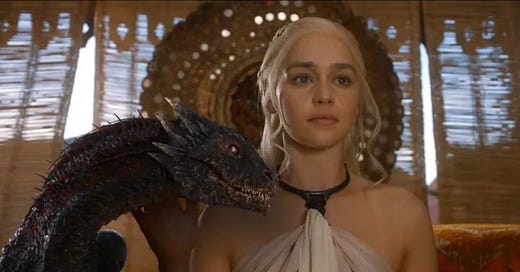Daenerys Targaryen Was Our Warning
What The Iconic Character Taught Us About Modern Political Extremism
*SPOILER ALERT* If you haven’t seen Game Of Thrones and plan to, beware of spoilers ahead. Also, why haven‘t you seen it?
In 2017, my partner at the time flagged a now-deleted Facebook post from a socialist friend of mine on the same day as the Season 6 finale of Game Of Thrones.
Invoking the Middle East conflict, he compared Israel to Cersei Lannister …
Keep reading with a 7-day free trial
Subscribe to Nick Rafter Writes to keep reading this post and get 7 days of free access to the full post archives.





